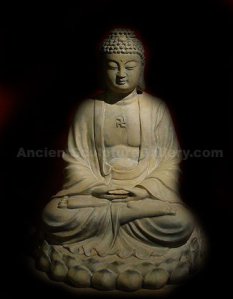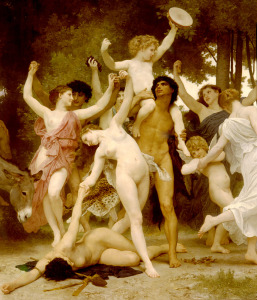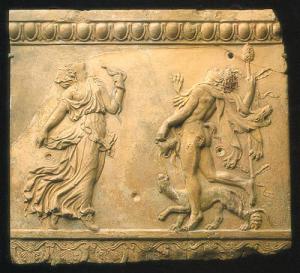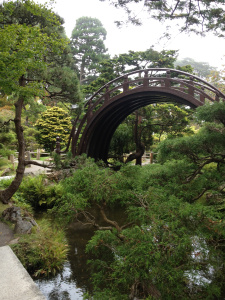I don’t dig the Buddha. I’m really outing myself here, because, if there is one thing that the humanist religious community can agree on, it’s that Buddhism is cool. Even the non-Buddhists think so. It is just not fashionable to dislike Buddhism.
Today, in our Spirit Circle discussion group at my UU church, we watched another segment of a documentary on Huston Smith, the eminent religion scholar. This segment was about Buddhism, specifically Tibetan Buddhism. I have since learned that there is as much diversity within Buddhism as there is within Christianity. Our “token Buddhist” in the group is always the resident expert on all things Buddhist. He leads two Buddhist practice groups at the church, and as I understand it, is a “somebody” in the regional Buddhist community. Today, in discussing the film, I gathered that he has a preference for the Zen form of Buddhism over the Tibetan version. I believe he prefers what he called the “starkness” of Zen to all the color of Tibetan Buddhism, which was ironic, because, if anything, the color and the iconography was the only thing that appealed to me about Buddhism.
Frankly, I start to zone out whenever we talk about Buddhism. It just doesn’t interest me. And today I was wondering why. Every religion, to be successful, must sell you a problem as well as a solution. That’s just good marketing. Christianity sells humankind’s “fallen nature” as the problem and salvation through substitutionary expiation as the solution. Neo paganismsells disconnectedness as the problem and (re-)connection as the solution. Buddhism sells “suffering” as the problem and non-attachment as the solution. Neither the focus on suffering, nor the ideal of non-attachment resonate with me. I understand that the term “suffering” (dukkha) probably translates better as “discontentment”. And yet, when he was asked today what drew him to Buddhism, our resident Buddhist said “suffering”, specifically the suffering that was created by his alcoholism.
I had just been thinking about the figure of the Buddha. Not the “laughing Buddha” or Budai, which is so popular, but the Gautama Buddha. If any word can be associated with that image is is perhaps “serenity”.

I’ve written elsewhere about the importance of stereotypes of religious identity. I identify as (Neo-)”Pagan”, because the image of the maypole-dancing, idol-worshiping, and fornicating-in-the-forest non-Christian calls to me.

I believe that this attraction, both mine to Dionysus and my co-congregant’s attraction to the Buddha, is a function of biography. For him, the Buddha was a way out of alcoholism, out of intoxication. I, on the other hand, can count on my fingers the number of alcoholic beverages I’ve consumed in my life. I was raised Mormon, and even after I left the LDS church, I was a natural teetotaler. But it is not just a question of alcohol. I have always been a sober and somber personality. So, what I want from religion is not serenity. I want passion. Pleasure, yes, but also creative suffering. I want ecstasy, which can be produced by pleasure or pain. I want intoxication.
Nietzsche wrote:
“Under the influence of the narcotic draught, of which songs of all primitive men and peoples speak, or with the potent coming of spring that penetrates all nature with joy, these Dionysian emotions awake, and as they grow in intensity everything subjective vanishes into complete self-forgetfulness. There are some who, from obtuseness or lack of experience, turn away from such phenomena as from ‘folk-diseases,’ with contempt or pity born of consciousness of their own ‘healthy-mindedness.’ But such poor wretches have no idea how corpselike and ghostly their so-called ‘healthy-mindedness’ looks when the glowing life of the Dionysian revelers roars past them.”

It is “the glowing life of the Dionysian revelers” that I want. And that’s why I don’t dig the Buddha. Just don’t tell anyone.















